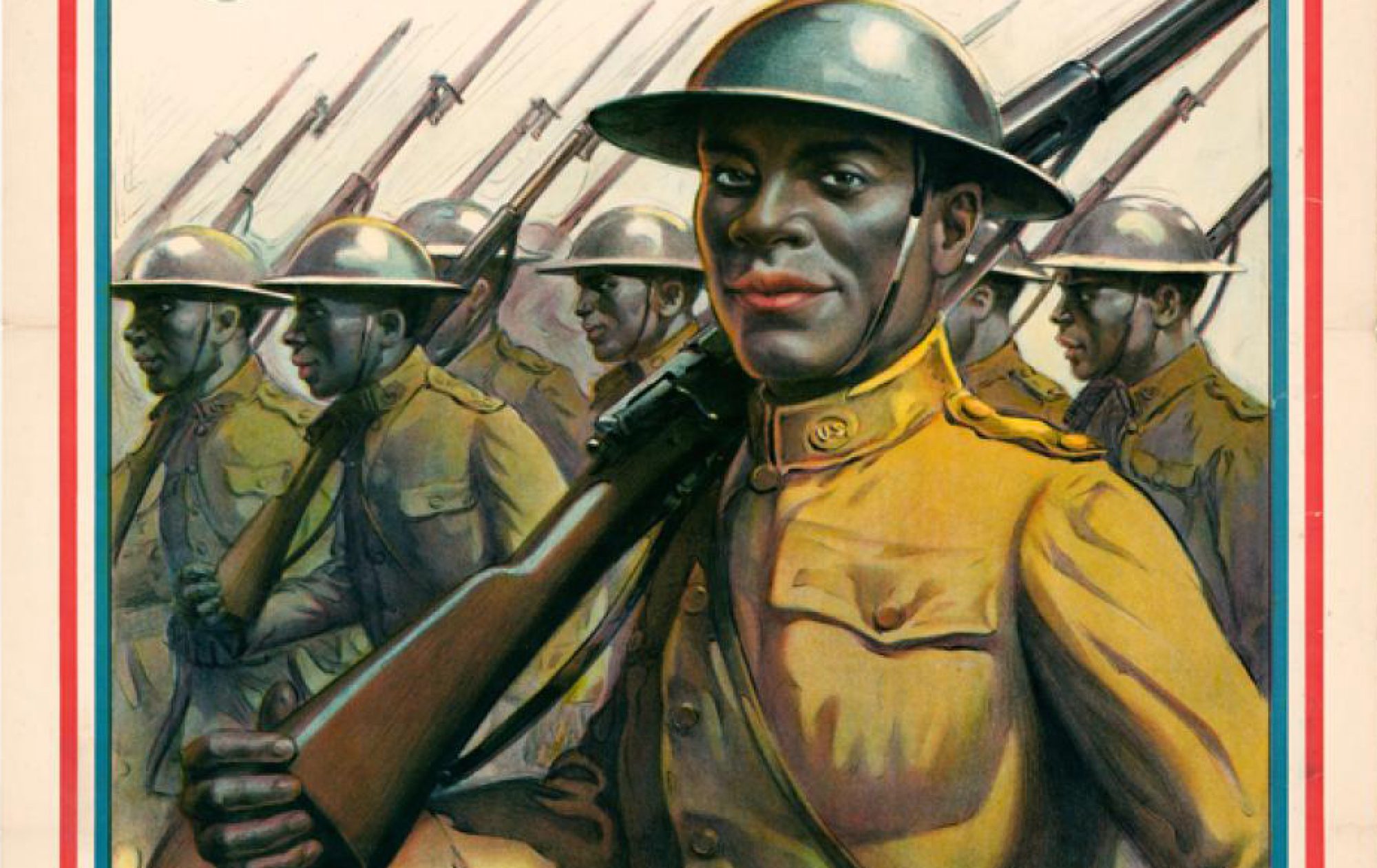
The rapid and massive growth of military camps across America would create tension within communities that now had white servicemen in close proximity with black populations. In an August 3, 1917 edition of the Newport (Rhode Island) Mercury Newspaper, Reverend William J. Lucas, Pastor of the Mt. Olivet Baptist Church posted a direct plea to Newport’s people of color to avoid trouble in public places, particularly with the large number of military personnel within the city. Reverend Lucas provides very specific instructions for members of the African American community, particularly African American women, that includes a self-imposed curfew to protect against personal violence that may lead to larger scale riots. As a direct aftermath of the at home tensions of the war years, Rev. Lucas and members of the Mt. Olivet Church lead the effort to form the Newport Branch of NAACP in 1919.
 As the sable soldiers returned to their home towns, cities and states with high expectations of equality, employment and respect, in its place they faced an unprecedented increase in racial tensions across America that led to the eruption of race riots across three dozen cities during the summer of 1919, which historians today refer to as “The Red Summer.”
As the sable soldiers returned to their home towns, cities and states with high expectations of equality, employment and respect, in its place they faced an unprecedented increase in racial tensions across America that led to the eruption of race riots across three dozen cities during the summer of 1919, which historians today refer to as “The Red Summer.”
 The Red Summer of 1919 brought violent race riots that befell more than three dozen cities across the United States. The worst riots and acts of violence against African Americans, many times returning soldiers while still in their uniforms were in Chicago, Charleston, South Carolina and even in our nation’s capital of Washington. Here in New England fighting erupted between white and black sailors at the large navy base in New London, Connecticut.
The Red Summer of 1919 brought violent race riots that befell more than three dozen cities across the United States. The worst riots and acts of violence against African Americans, many times returning soldiers while still in their uniforms were in Chicago, Charleston, South Carolina and even in our nation’s capital of Washington. Here in New England fighting erupted between white and black sailors at the large navy base in New London, Connecticut.
Tragically, the lynching of African Americans would also rise like no other time since the Jim Crow days of the late 19th century. Some African American veterans would be lynched while in uniform. And the KKK would swell to over 4 million members nationwide by the mid-1920’s. The concerns of physical violence to African Americans became such a national concern, the NAACP sent an urgent telegram to President Wilson stating,
“The National Association for the Advancement of Colored People respectfully enquires how long the Federal Government under your administration intends to tolerate anarchy in the United States?”

